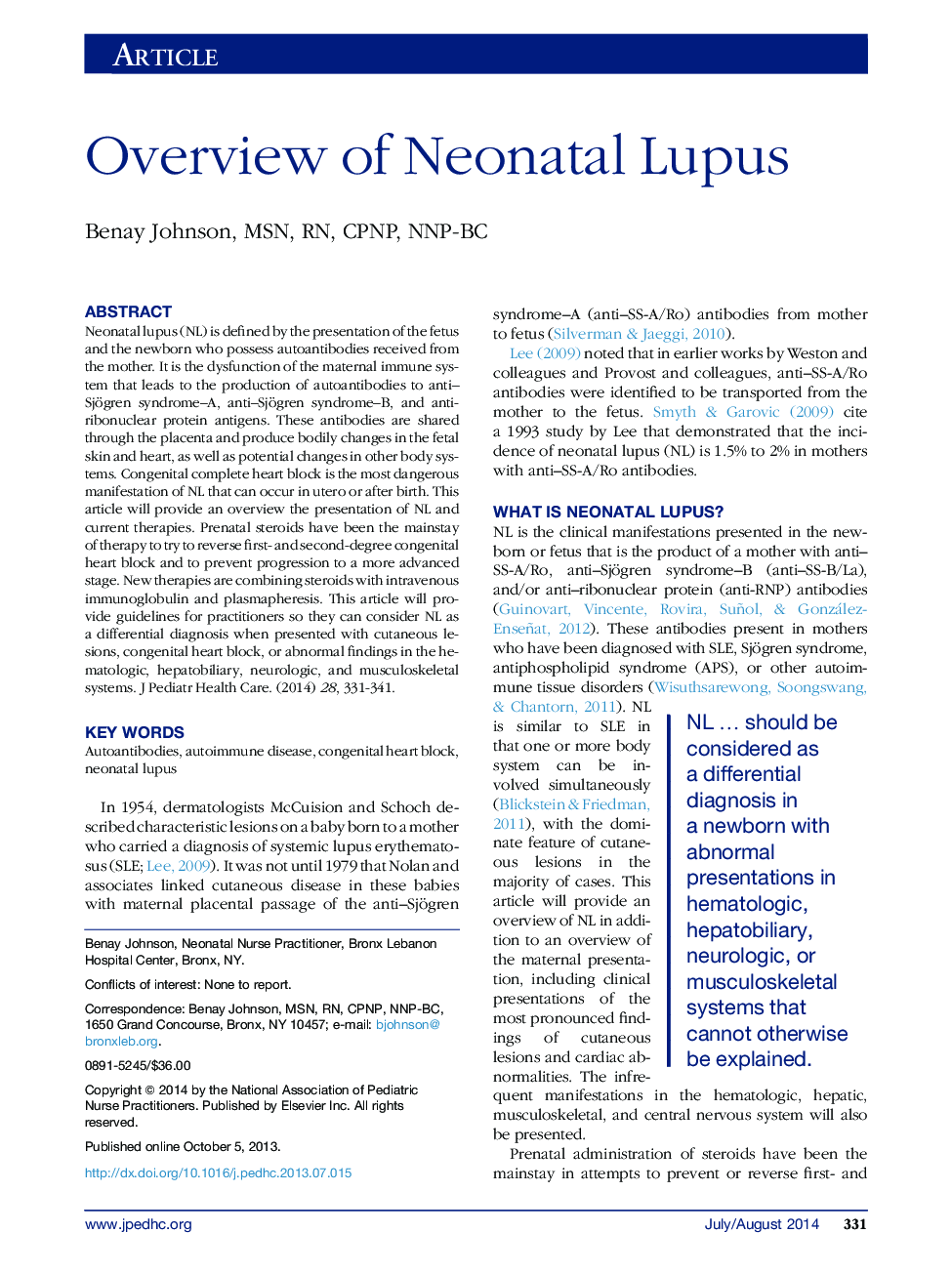| Article ID | Journal | Published Year | Pages | File Type |
|---|---|---|---|---|
| 2661866 | Journal of Pediatric Health Care | 2014 | 11 Pages |
Neonatal lupus (NL) is defined by the presentation of the fetus and the newborn who possess autoantibodies received from the mother. It is the dysfunction of the maternal immune system that leads to the production of autoantibodies to anti–Sjögren syndrome–A, anti–Sjögren syndrome–B, and anti-ribonuclear protein antigens. These antibodies are shared through the placenta and produce bodily changes in the fetal skin and heart, as well as potential changes in other body systems. Congenital complete heart block is the most dangerous manifestation of NL that can occur in utero or after birth. This article will provide an overview the presentation of NL and current therapies. Prenatal steroids have been the mainstay of therapy to try to reverse first- and second-degree congenital heart block and to prevent progression to a more advanced stage. New therapies are combining steroids with intravenous immunoglobulin and plasmapheresis. This article will provide guidelines for practitioners so they can consider NL as a differential diagnosis when presented with cutaneous lesions, congenital heart block, or abnormal findings in the hematologic, hepatobiliary, neurologic, and musculoskeletal systems.
